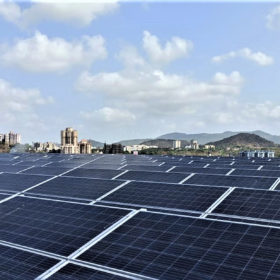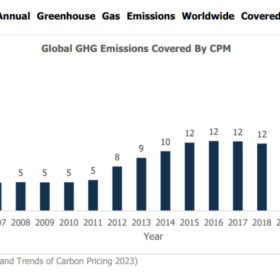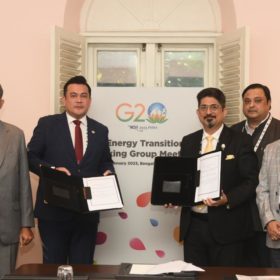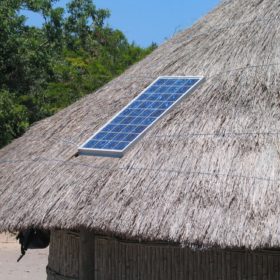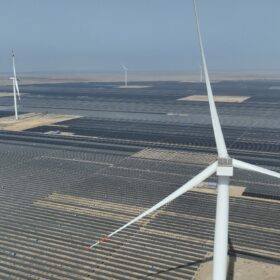The practicality of a 100% renewable energy system
The biggest question for the transition from the conventional practice of electricity generation to 100% eco-clean renewable energy resources is, can we maintain the electricity grid stable every minute of every day? The answer is clearly YES, and it is practical.
Solar energy’s vital role in climate change mitigation
With solar taking a more significant portion of the energy and power mix, climate change can be significantly mitigated. Coal, for instance, is one of the dirtiest fuels, but makes up 70% of India’s power generation.
Solar energy as the change maker in rural India
To scale the adoption of clean technologies in rural areas, we need to focus more on leveraging the experience of early women adopters. We should organise hyperlocal events and demos – create spaces for women to network and become aware.
Unveiling India’s carbon credit revolution: From local initiatives to global impact
The Indian carbon credit system, operating under the Clean Development Mechanism (CDM) and the United Nations Framework Convention on Climate Change (UNFCCC), stands ahead in several aspects.
What is a carbon credit market?
When one company captures a unit of carbon from the atmosphere using some green technology (this process is called carbon sequestration), it can generate a carbon offset. Other companies can then purchase that carbon offset to reduce their carbon footprint.
India signs MoU on energy efficiency programmes in Indonesia, Malaysia and Thailand
India’s Energy Efficiency Services Ltd has agreed to provide technical advisory, project management, contracting and implementation support for energy efficiency programmes in Indonesia, Malaysia, and Thailand.
PM Modi inaugurates India Energy Week 2023 in Bengaluru
Prime Minister Narendra Modi today launched India Energy Week 2023, a three-day event connecting India’s energy stakeholders with international counterparts to collaborate for a responsible and smart energy transition on India’s road to net zero. Addressing the gathering, the Prime Minister said India is today the world’s most suitable place for investment. He called upon the stakeholders to explore every possibility in India’s energy sector and get involved with it.
ONGC signs MoU with Shell for carbon capture, utilization and storage
India’s largest crude oil and natural gas company has signed an agreement with global energy giant Shell for joint study on carbon capture, utilization and storage.
How Indian businesses are growing with ESG
Today, following the ESG (environmental, social and governance) mandate is more than just ticking off a box in the compliance checklist. It is taking ownership of the consequences of the businesses and working towards creating a positive impact by partnering with the right groups.
EKI Energy, First Source launch climate edtech, finance venture
EKI Energy and First Source Energy have launched a joint venture entity that will drive focused educational initiatives while also mobilising funds from global markets for sustainable climate projects across the globe.

